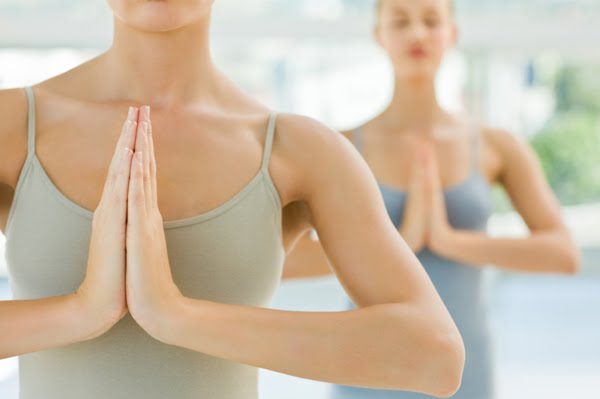Yoga & Judaism: A Love Story
Permanent link
I've been practicing yoga for about eight years; you would think I would be a full-fledged master by now. However, a great yoga practice is when I can touch my toes.
To be honest, I’m not consistent when it comes to any form of physical exercise. It’s a “one step forward, two steps back” kind of relationship. I’ll go to yoga Monday through Friday for three weeks, and then I’ll take a hiatus for two months. Although this relationship clearly can’t be good for my physical health, the lessons I’ve taken away from my yoga practice have helped me through many emotional crises. I also realized how closely related my yoga practice is to my religion.
Being present
This is the root of yoga. At the end of every yoga practice is the savasana pose, or corpse pose, when you lie down on your back for a few minutes and meditate. It’s considered one of the most difficult poses because your mind can easily wander out of the present moment. Through savasana pose, I’ve learned that being present gives you clarity that can’t be achieved from a multi-tasking mind. Savasana reminds me of the meditations I read in the machzor during the High Holidays at synagogue. Within the meditations are stories about rabbis who teach life lessons to those in need of guidance. I’ve learned from my yoga practice and the machzor that you learn unexpected lessons that alter your life for the better when you’re present.
Gratitude
Yoga and Judaism teach us to be thankful for our blessings and misfortunes. It’s easy for us to be grateful for the good in our lives, but it’s much more difficult to be grateful for the setbacks. However, within the setbacks are lessons to be learned and opportunities to reinvent ourselves.
Acceptance
In almost every yoga class, you’ll find a yogi huffing and puffing while in pain because they’re pushing their body’s limitations. Pain is the antonym of yoga. Yoga is about accepting what your body can and can’t do. By accepting your body’s limitations in yoga, overtime, you’ll advance to more complicated poses. By accepting myself in my yoga practice, I was able to accept other’s in their entirety outside of yoga. My parents, however, were a whole other battle. I used to take all my frustrations out on them, which was ironic because the fifth of the Ten Commandments is to honor one’s parents. I realized I was the reason my relationship with my parents was sour, so I decided to implement the fifth commandment in my life. Now, the relationship I have with my parents is stronger than it’s ever been.
It’s true: I’m very inconsistent when it comes to my yoga practice and the only time I can guarantee I’ll be attending synagogue is during the High Holidays. But, by being present in just one yoga class and Rosh Hashanah or Yom Kippur service, I’m learning valuable lessons on how to become my best possible self. All I had to do was show up.



.jpg)



